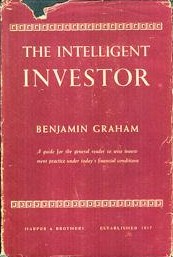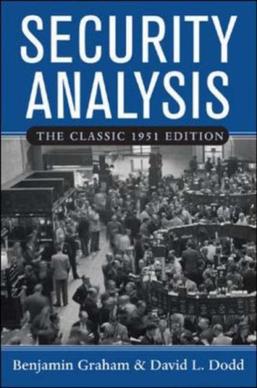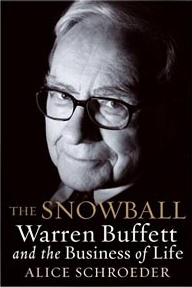
Warren Edward Buffett is an American business magnate, investor, and philanthropist. He is currently the chairman and CEO of Berkshire Hathaway. As a result of his immense investment success, Buffett is one of the best-known fundamental investors in the world. As of November 2023, he had a net worth of $118 billion, making him the seventh-richest person in the world.
Li Lu is a Chinese-born American value investor, businessman and philanthropist. He is the founder and chairman of Himalaya Capital Management. Prior to immigrating to America, he was one of the student leaders of the 1989 Tiananmen Square student protests. In 2021, he also co-founded The Asian American Foundation and serves as its chairman.

Berkshire Hathaway Inc. is an American multinational conglomerate holding company headquartered in Omaha, Nebraska, United States. Its main business and source of capital is insurance, from which it invests the float in a broad portfolio of subsidiaries, equity positions and other securities. The company has been overseen since 1965 by its chairman and CEO Warren Buffett and vice chairman Charlie Munger, who are known for their advocacy of value investing principles. Under their direction, the company's book value has grown at an average rate of 20%, compared to about 10% from the S&P 500 index with dividends included over the same period, while employing large amounts of capital and minimal debt.

Benjamin Graham was a British-born American economist, professor and investor. He is widely known as the "father of value investing", and wrote two of the founding texts in neoclassical investing: Security Analysis (1934) with David Dodd, and The Intelligent Investor (1949). His investment philosophy stressed investor psychology, minimal debt, buy-and-hold investing, fundamental analysis, concentrated diversification, buying within the margin of safety, activist investing, and contrarian mindsets.

Value investing is an investment paradigm that involves buying securities that appear underpriced by some form of fundamental analysis. The various forms of value investing derive from the investment philosophy first taught by Benjamin Graham and David Dodd at Columbia Business School in 1928, and subsequently developed in their 1934 text Security Analysis.
Borsheims is a luxury jewelry store that sells fine jewelry, timepieces, engagement rings and home decór in Omaha, Nebraska. In 1870, Norwegian immigrant and silversmith Louis Borsheims founded his independent jewelry business that would later become known as Borsheims. The luxury jewelry retailer began as Brown and Borsheim. In 1907, Louis A. Borsheim sold his interests in Brown and Borsheim, thus began the Omaha staple, Borsheims. The business was sold to Louis Friedman and Simon Gorelick in 1947. In 1950, Louis bought out his brother in law, Simon Gorelick and his son Ike joined the business, who both retained the Borsheims name. In 1980, Ike Friedman bought out his father, Louis. Ike's son Alan and son in law joined the business. In 1985, his other son in law, Donald Yale joined the business. His two daughters, Janis Yale and Susie Cohn also worked in the business.

The Intelligent Investor by Benjamin Graham, first published in 1949, is a widely acclaimed book on value investing. The book provides strategies on how to successfully use value investing in the stock market. Historically, the book has been one of the most popular books on investing and Graham's legacy remains.
William J. Ruane was an American businessman, investor, and philanthropist.

Security Analysis is a book written by professors Benjamin Graham and David Dodd of Columbia Business School, which laid the intellectual foundation for what would later be called value investing. The first edition was published in 1934, shortly after the Wall Street crash and start of the Great Depression. Among other terms, Graham and Dodd coined the term margin of safety in Security Analysis.
Growth investing is a type of investment strategy focused on capital appreciation. Those who follow this style, known as growth investors, invest in companies that exhibit signs of above-average growth, even if the share price appears expensive in terms of metrics such as price-to-earnings or price-to-book ratios. In typical usage, the term "growth investing" contrasts with the strategy known as value investing.
An undervalued stock is defined as a stock that is selling at a price significantly below what is assumed to be its intrinsic value. For example, if a stock is selling for $50, but it is worth $100 based on predictable future cash flows, then it is an undervalued stock. The undervalued stock has the intrinsic value below the investment's true intrinsic value.
Bruce Corman Norbert Greenwald, is a professor at Columbia University's Graduate School of Business and an advisor at First Eagle Investment Management. He is, among others, the author of the books Value Investing: from Graham to Buffett and Beyond and Competition Demystified: A Radically Simplified Approach to Business Strategy. He has been referred to by The New York Times as "a guru to Wall Street's gurus" and is a recognized authority on value investing, along with additional expertise in productivity and the economics of information.
Owner earnings is a valuation method detailed by Warren Buffett in Berkshire Hathaway's annual report in 1986. He stated that the value of a company is simply the total of the net cash flows expected to occur over the life of the business, minus any reinvestment of earnings.
David Sanford Gottesman was an American businessman and billionaire. He founded First Manhattan Co. (FMC), and was noted for his friendship with Warren Buffett.
"The Superinvestors of Graham-and-Doddsville" is an article by Warren Buffett promoting value investing, published in the Fall, 1984 issue of Hermes, Columbia Business School magazine. It was based on a speech given on May 17, 1984, at the Columbia University School of Business in honor of the 50th anniversary of the publication of Benjamin Graham and David Dodd's book Security Analysis. The speech and article challenged the idea that equity markets are efficient through a study of nine successful investment funds generating long-term returns above the market index. All these funds were managed by Benjamin Graham's alumni, following the same "Graham-and-Doddsville" value investing strategy but each investing in different assets and stocks.

The Snowball: Warren Buffett and the Business of Life (ISBN 0553805096) is a biography of Warren Buffett by Alice Schroeder.
Tweedy, Browne Company LLC is an American investment advisory and fund management firm founded in 1920 and headquartered in Stamford, CT. As of December 2012, it managed approximately 13 billion dollars in separate accounts and four mutual funds.

Mr. Market is an allegory created by investor Benjamin Graham to describe what he believed were the irrational or contradictory traits of the stock market and the risks of following groupthink. Mr. Market was first introduced in his 1949 book, The Intelligent Investor.
Campbell Hausfeld is a manufacturer of consumer, industrial, and commercial grade, low priced air compressors and related products, based in Harrison, Ohio. It is a major subsidiary of the Marmon Group which in turn is part of Berkshire Hathaway. It is one of the oldest companies in Ohio.

Becoming Warren Buffett is a 2017 documentary film about Warren Buffett and his life. The film was made for HBO.








